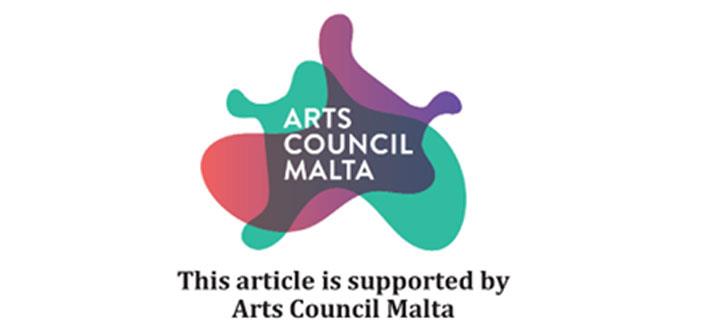Opera first arrived in Gozo at the Aurora Opera House. It was way back in 1977, with Puccini's much-beloved Madama Butterfly. Since then it was staged there again after a 20-year interval in 2017. Last Saturday's production followed after a mere six years and proved yet again to be a crowd-puller.
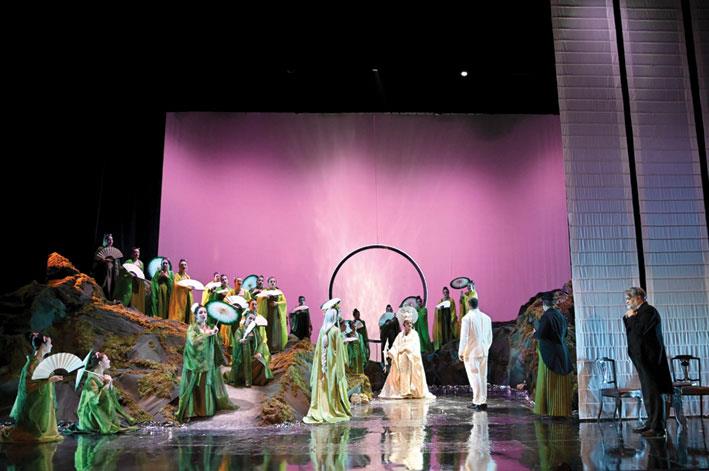
It was a much looked forward to production. Opera in Gozo is taken very seriously and no stone is left unturned in order to continue along the road of raising and maintaining standards.
Last Saturday's performance was a virtual full house, and, a special event for the Leone Philharmonic Society, founded 160 years ago in 1863. This was a celebration of a special anniversary. The first Aurora Theatre was built in 1963. By 1976, construction of the current Aurora Opera House was completed, opening its doors to the first opera production in January 1977. This was another anniversary celebration, the 46th of that first Butterfly in Gozo.

What a Madama Butterfly this was! There was a first-class cast of principals. Soprano Federica Vitali was a visually beautiful Cio-Cio-San who eagerly tries to leave her past behind her and embrace an alien culture by marrying Pinkerton. She reneges on the religion of her forebears, relatives and friends in a quite obvious clash of cultures, which runs like a thread in the entire opera. Vitali is a truly impressive singing-actress. She smoothly tackled the transition from adolescence to womanhood, retaining utter faith and hope in preserving her marriage to what proves to be a worthless man. The feverish hope at the prospect of meeting him again is pitiful because we know how it will end. This makes the latter scene with Sharpless all the more poignant as she is filled with intense joy and expectation. Sharpless does not have the heart to tell her the full truth. However, a singer like her made one join her, going against reality and final dénouement; we tend to rebel against the obvious, hoping with her that she would triumph. She did triumph in her Un bel dì vedremo. That is until the devastating truth hit home. Despairing, she could not but cling to one of her innately unchanged values: that death was better than living dishonourably.

Pinkerton is one of opera's biggest cads. To me a totally despicable rogue who knew no better than to take advantage of the 15-year-old girl he marries ("marries" according to him). Tenor Mikhiel Sheshaberidze acted the cynical cad very well, with impatient ardour, especially in the Love Duet ending Act 1 projected via a beautiful, full voice. His and off-stage remorse reeked all too well of being just a bit too late.
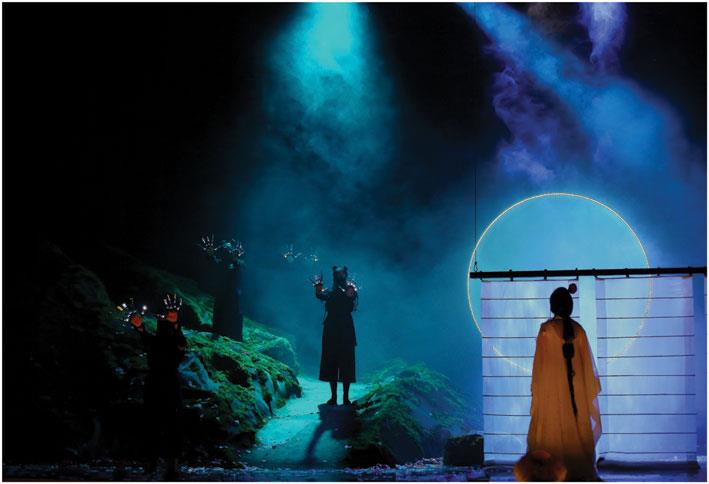
Sharpless, sung by baritone Piero Terranova (last seen at the Aurora last April as Giorgio Germont), brought out the best in his character. After having in part aided Pinkerton's quest for a Japanese bride, he gives him early warning that his friend's folly would lead to a painful end for Butterfly. He tries without success to alleviate her terminal pain at having to give up her son to the boy's father and his (to him) "real" wife.
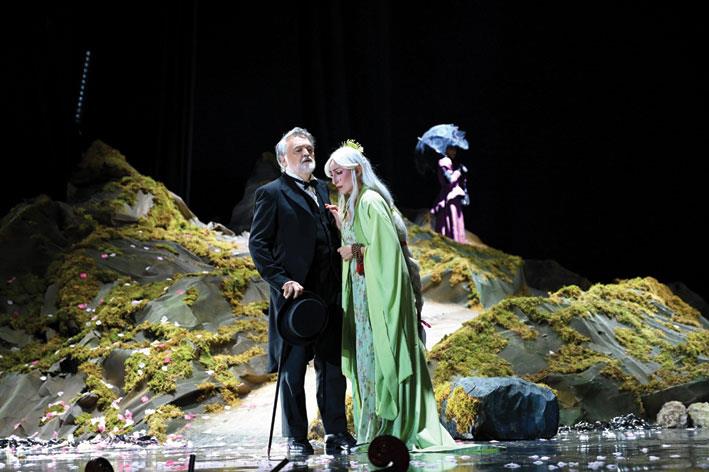
Mezzo-soprano Maria Annunziata Vestri's Suzuki, Butterfly's maid, companion and confidante, was a picture of loyalty. At times even too realistic to Butterfly's liking and has to reluctantly humour her mistress. She took great care of the little boy, Sorrow, fruit of the ill-fated interracial union. This patient, silent role was played very well by Paolo Xerri.
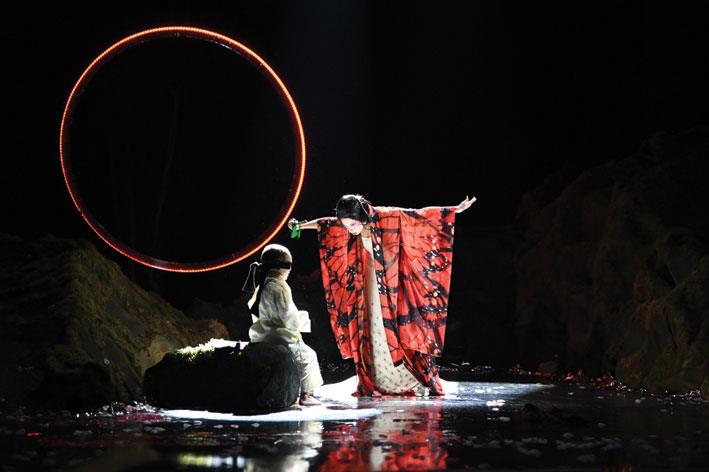
Of the remaining smaller roles the most significant was the Goro of tenor Cliff Zammit Stevens. Unctuous, servile, enterprising, a venomous gossip and tireless marriage broker. Succesfully at first regarding Butterfly and Pinkerton, then failing with the dignified much-married and widowed Prince Yamadori (tenor Stanley Joe Portelli) who made the best of his few minutes in Act 2. Very convincing was the irate bonze of baritone Louis Andrew Cassar who disrupts and spoils his niece Butterfly's reception while denouncing and disowning her for changing her religion, almost coming to blows with Pinkerton.

Bass Ken Scicluna was well-cast as the Imperial Commissioner officiating at the wedding. Mezzo-soprano Clare Ghigo's Kate Pinkerton handled her uncomfortable role very well, for she was the unwitting cause of Butterfly's sorrow.
The Aurora Opera Chorus (chorus master Colin Attard) sounded very well-trained, on cue, appearing only in Act 1, moved about slickly on entry and exit. Unless my ears were playing tricks at the end of Act 2 the famous Humming Chorus sounded less of humming and more of vocalising.

The exotic setting was evident mainly through the splendid costumes and overall production design created by Luke Azzopardi. A genial touch was Butterfly's costume which really seemed like a butterfly when her back faced the audience. The very long hair descending from the singer's head then in sections, looked the thorax and long abdomen of a butterfly. The effect was even more realstic when Butterfly outstretched her arms simulating the wings. The joint collaboration between Azzopardi and stage director Riccardo Buscarini produced very effective results. The flimsiness of the paper partitions or "walls" and the ease with which Butterfly pulls them down were mindful of the collapse of her dreams. I liked the touch of a number of black-clad dancers holding glowing lights in well-planned movements reminiscent of glowworms during the Humming Chorus. A sight sadly no longer seen in my part of the world. Another cog in the wheel of this production was Moritz Savan Stöckle as lighting designer.
Attard ably directed the Malta Philharmonic Orchestra (leader Marcelline Agius) on its usual top and reliable form. Well done to all involved in this great team effort, including a large number of volunteers, and of course the many sponsors, big and small.
